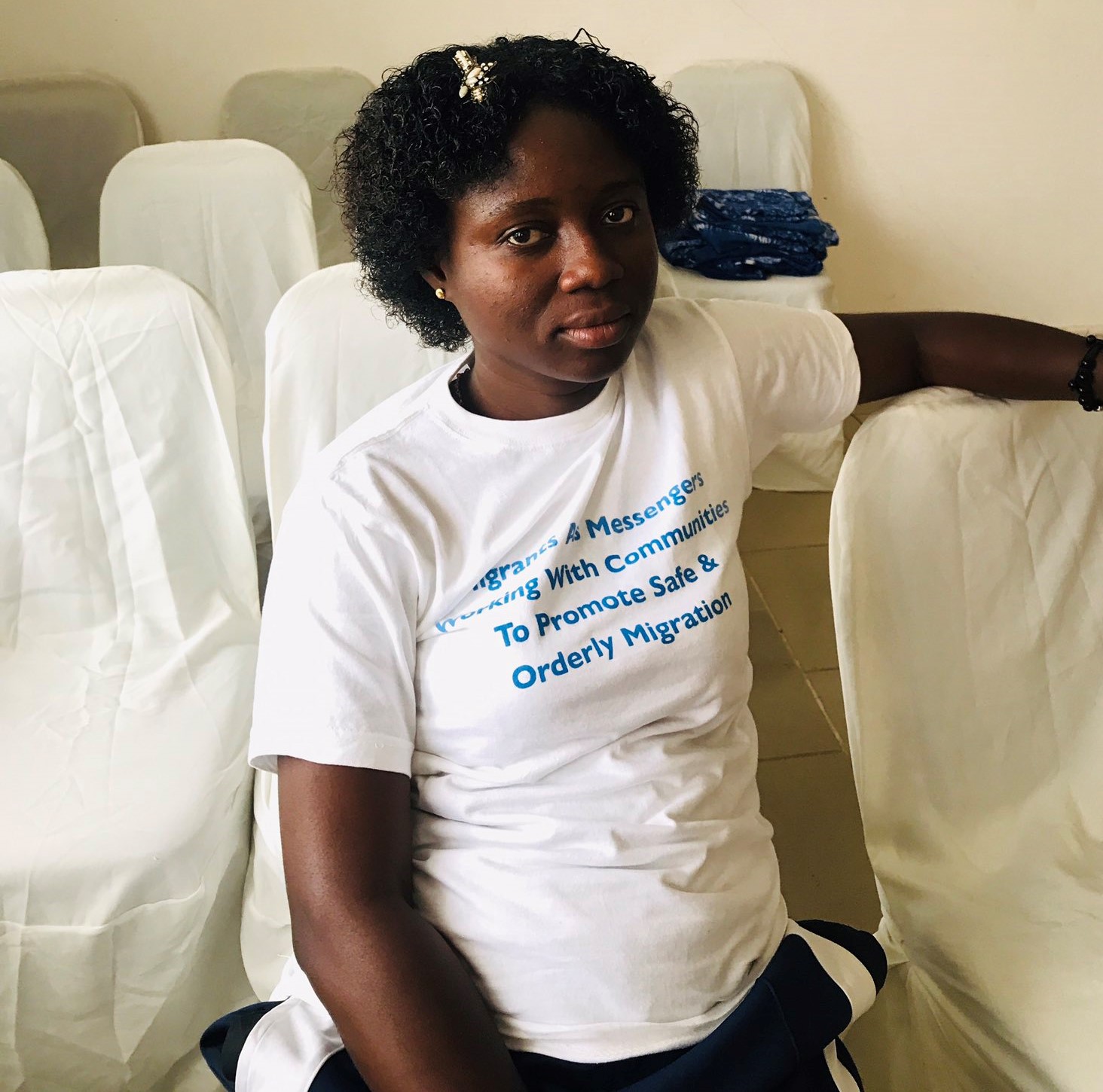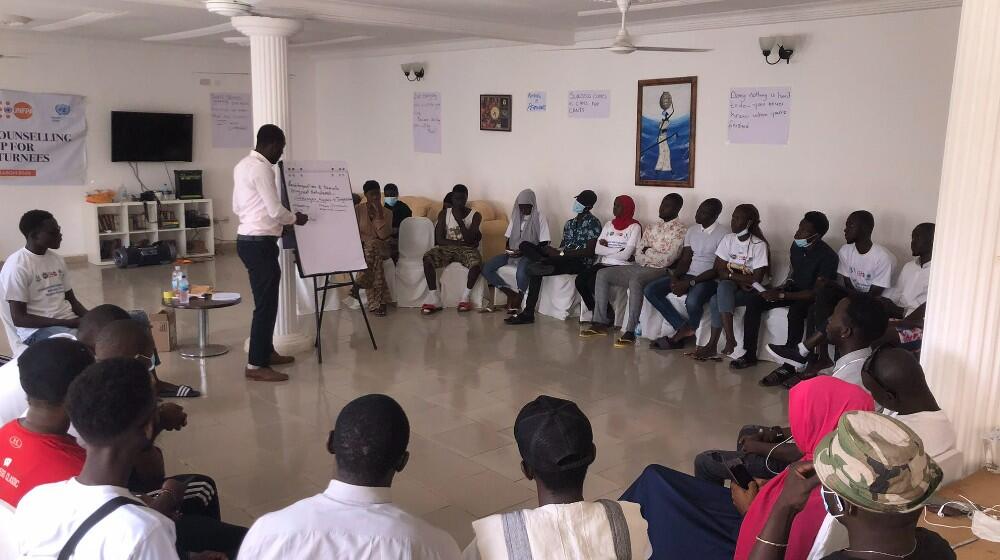According to the UN migration Agency, between 2014 and 2018 alone, more than 35,000 Gambians arrived in Europe through the irregular route. While many make it to their intended destination, thousands of others opt for voluntary return influenced by harsh travel conditions experienced along the way, including through their attempts to cross the Mediterranean.
While making it out alive to return home safely upon seeing and living through degrading and inhumane conditions is a wish for many who have already commenced the irregular journey, condemnation and exclusion is the fate of many who eventually return home to reunite with their families. This perpetuates discrimination against returnees and increases their vulnerability to abuse, which further impact their mental health and psychosocial wellbeing.
Responding to the need to invest in supporting young returnees and ensuring that they are empowered to participate in the development of their communities, UNFPA with funding from UN Peacebuilding, supported a 5-day Guidance and Counselling Bootcamp for 50 returnee migrants from across the country. Organised by the National Youth Parliament, the bootcamp was aimed at providing participants with mental health and psychosocial support to heal from traumas experienced while plying the irregular route in search of greener pastures and to empower them with coping mechanisms that will enhance their participation in daily social life within their communities.
Rohey Bah is one of the many young people who opted to return home after experiencing unbearable conditions on her journey. “When I first shared my story, I was highly discriminated against in my community. It has been a difficult experience, but I am glad to be safe and back home” she mentioned.
For Rosaline, the trauma she has experienced on her attempt to travel to Europe by this means will forever stay with her. “After witnessing a person being burnt alive, I have not been myself. I am now terrified of the dark” she shared.

Rohey and Rosaline are only 2 of many young people in The Gambia who require support to recover from the trauma they have been subjected to through their attempt to travel to Europe via irregular means. In order for communities to advance and for The Gambia to fully realise the benefits of its youthful population, young migrant returnees should not be left behind and their needs must be addressed.
***
Media contact: Haddy Jonga – Programme Analyst Communications, UNFPA The Gambia jonga@unfpa.org


